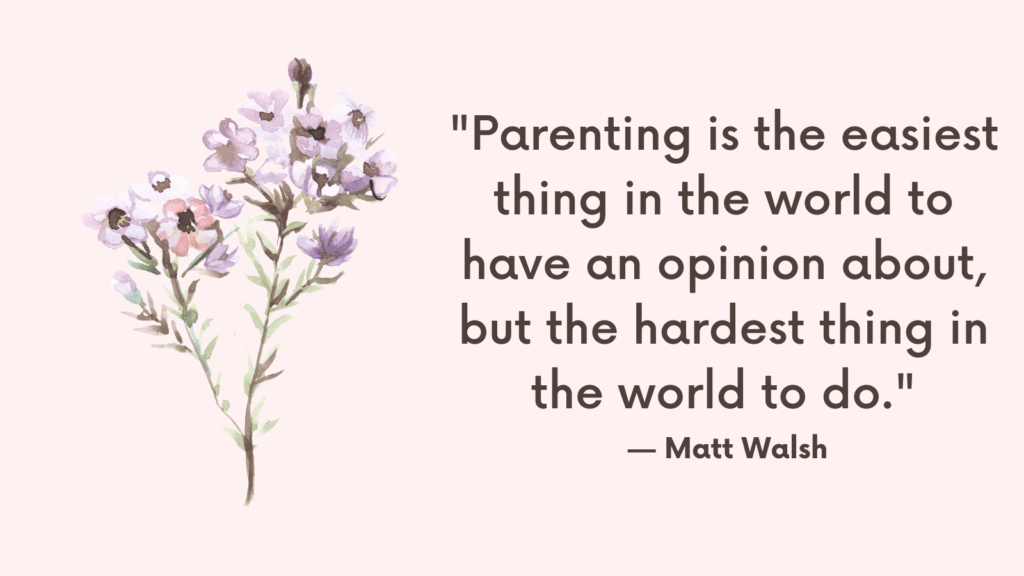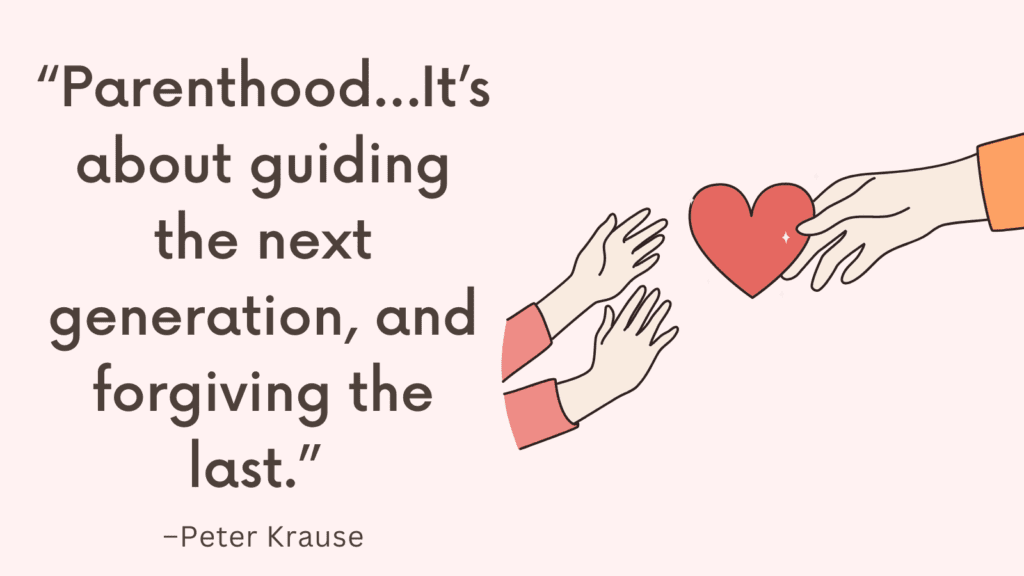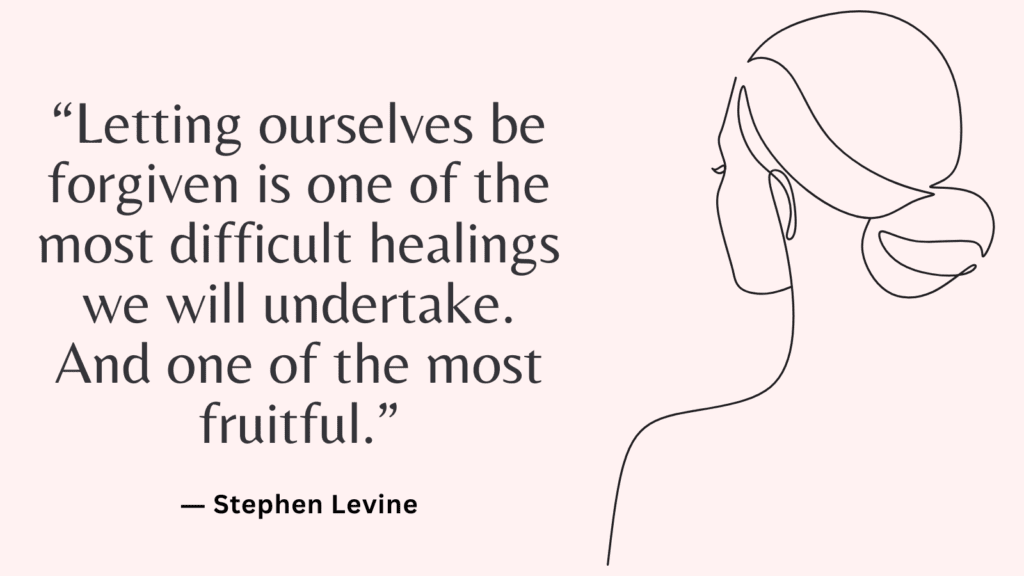Parent-child relationships can be complex and challenging, especially when adult children display ungrateful behavior.
In this post, you’re going to learn how to deal with ungrateful adult children.
Why Are My Adult Children Behaving Ungratefully?
There can be various reasons why adult children may behave ungratefully.
It is important to note that individual experiences and circumstances contribute to their behavior, and it may not be solely attributed to one factor.
Here are some possible explanations to consider:
1. Personal Characteristics: Every individual has a unique personality, and some may struggle with expressing gratitude or have difficulty recognizing and appreciating the efforts of others.
2. Upbringing: Parenting styles and family dynamics during childhood can influence how children perceive and express gratitude in adulthood. If there was a lack of emphasis on gratitude during their upbringing, they may find it challenging to demonstrate appreciation later in life.
3. Societal Influences: Cultural shifts and societal changes can influence individuals’ attitudes and behaviors over time. The increasing focus on individualism and self-centeredness in some societies might impact how gratitude is expressed.
4. Unresolved Conflicts: Previous conflicts or unresolved issues within the family can strain relationships and affect the way adult children express gratitude. Lingering resentments or misunderstandings may hinder their ability to show appreciation.
Understanding these factors can provide a starting point for addressing ungrateful behavior.
However, it is essential to approach the situation with empathy, open-mindedness, and a willingness to engage in constructive dialogue.
Each individual is unique, and their behavior may require specific attention and understanding.
Related: Toxic Mother Daughter Relationship Quiz (+FREE Worksheets)
How to Deal with Ungrateful Adult Children?
1. Recognize and accept your emotions
It is normal to feel hurt, disappointed, or even angry when your adult child behaves ungratefully.
Acknowledging and accepting these emotions is the first step towards finding constructive solutions.
Remember that your reaction is valid and natural, but it is important not to let it consume you.
2. Reflect on your expectations
Reflect upon whether your expectations of gratitude from your adult child are realistic or influenced by societal norms.
Sometimes, our expectations can be too high, leading to disappointment.
Take time to reassess your expectations and perspectives, allowing for more flexibility and understanding.
3. Practice empathy
Empathy plays a vital role in improving relationships.
Try to put yourself in your adult child’s shoes and consider their perspective.
Empathy does not mean condoning ungrateful behavior but rather understanding the underlying factors that might contribute to it.
This understanding can pave the way for open communication and healing.
Related: Daughters Who Blame Their Mothers For Everything – Top 5 Tips On How To Deal With It
4. Communication is key
Initiate an open and non-confrontational conversation with your adult child about their ungrateful behavior.
Choose a comfortable and neutral setting, where both parties can speak honestly and respectfully.
Express your feelings calmly, using “I” statements instead of blaming language.
Encourage them to share their thoughts as well, promoting mutual understanding.
5. Set healthy boundaries
Unhealthy behaviors and attitudes should not be tolerated indefinitely.
Establishing clear boundaries is crucial for maintaining your emotional well-being.
Communicate these boundaries with kindness and assertiveness, expressing your needs while acknowledging their autonomy as an adult.
Enforcing boundaries may be challenging at first, but it is essential for fostering healthier dynamics.
Related: Top 25 Tips On How To Set Boundaries In A Toxic Relationship? (+FREE Worksheets PDF)
6. Focus on self-care
While dealing with ungrateful behavior from your adult child, prioritize self-care practices.
Engage in activities that bring you joy, relaxation, and rejuvenation.
Physical exercise, hobbies, meditation, or spending time with supportive friends can help reduce stress and enhance your overall well-being.
7. Seek support networks
Connect with individuals who are going through similar experiences.
Support groups or online communities can provide a safe environment for sharing stories, receiving advice, and finding comfort in knowing that you are not alone.
Hearing others’ perspectives can offer additional insights into coping strategies and personal growth.
Related: Top 45 Self Care Day Ideas at Home To Kickstart Your Self Care Ritual

Should I Confront My Adult Child About Their Ungrateful Behavior?
The decision to confront your adult child depends on your individual circumstances and goals.
But before deciding whether or not to confront your adult child about their ungrateful behavior, it is essential to consider a few factors:
1. Reflect on Your Motives
Examine your intentions for wanting to confront your child.
Are you seeking to understand their perspective, improve the relationship, or simply express your own frustrations?
Honesty with oneself is crucial in ensuring that the conversation remains constructive.
2. Timing and Approach
It is important to choose an appropriate time and approach when discussing sensitive topics.
Ensure that both you and your child are in a calm and receptive state to have a meaningful conversation.
Consider using “I” statements to express your feelings without sounding accusatory or confrontational.
3. Active Listening
During the conversation, actively listen to your child’s perspective without interrupting or becoming defensive.
Show empathy and try to understand the underlying reasons for their behavior.
This will promote a more open and honest dialogue.
Related: How To Validate Someone’s Feelings Without Agreeing? (+Examples of Validating Statements)
4. Seek Professional Help
Family therapy or counseling sessions can provide a safe space for open communication and a neutral perspective.
A psychologist can guide the process, offer insights into family dynamics, and help both you and your child work towards positive change.
Conclusion
Coping with ungrateful behavior from adult children is undeniably challenging.
However, by applying these scientifically grounded suggestions, you can begin cultivating healthier relationships and finding inner peace.
Remember that change takes time and effort, and progress may not always be linear.
Be patient with yourself and your adult child as you navigate this journey towards improved family dynamics.



